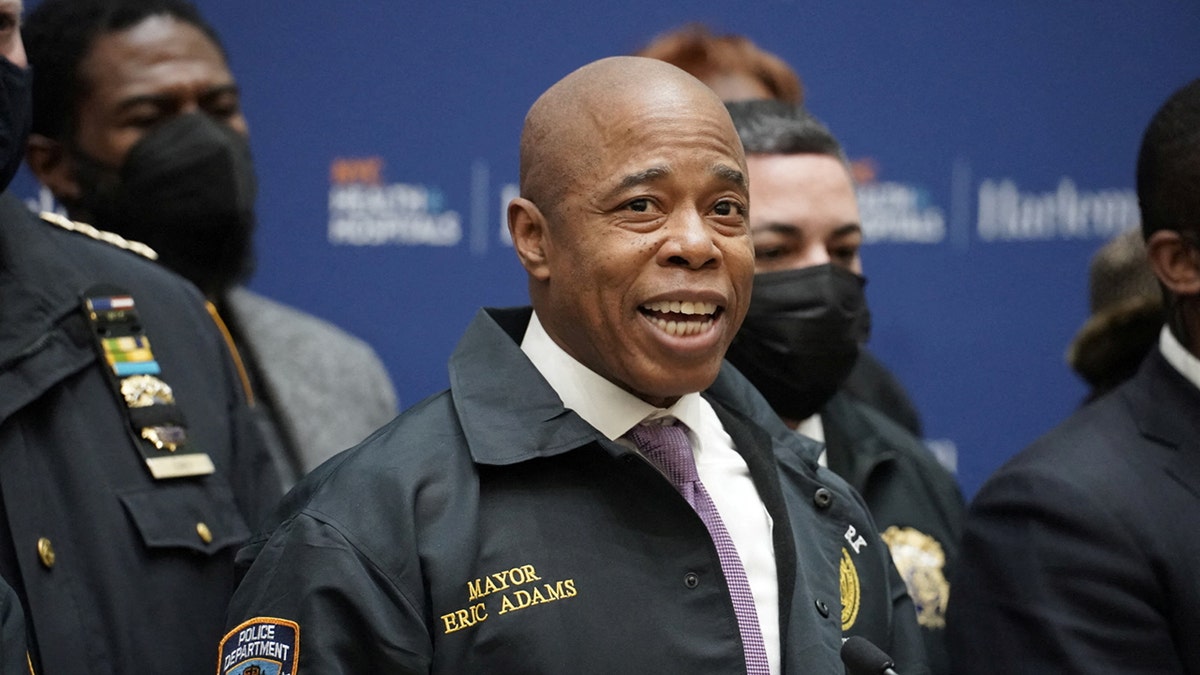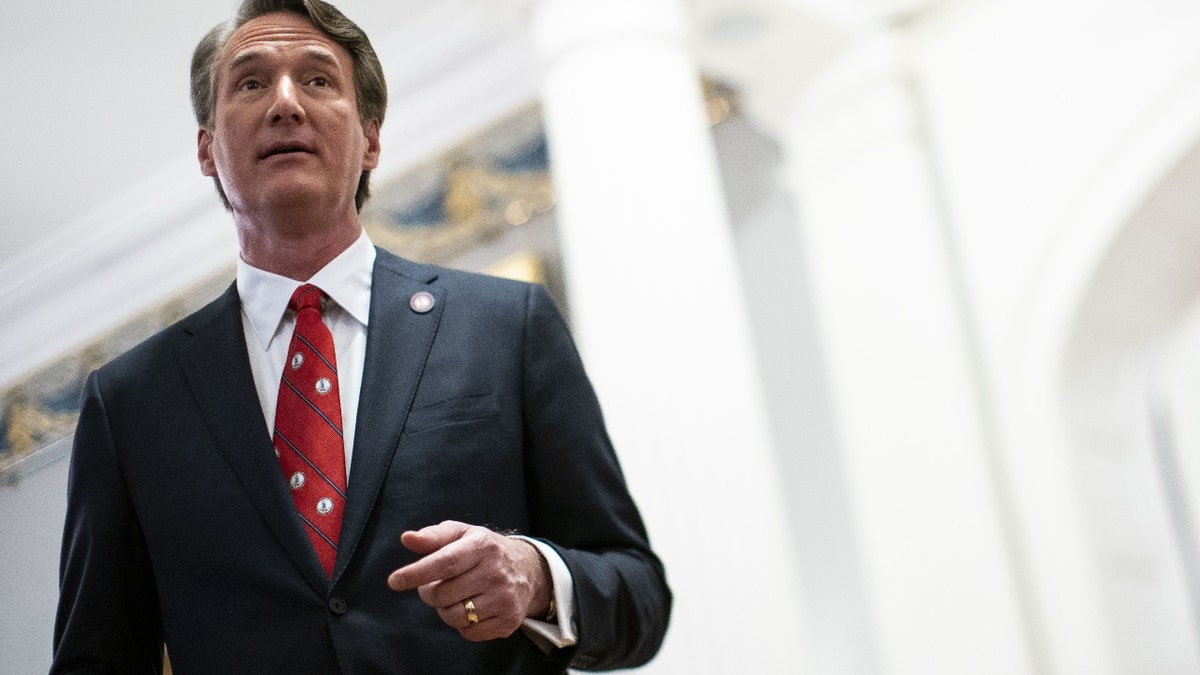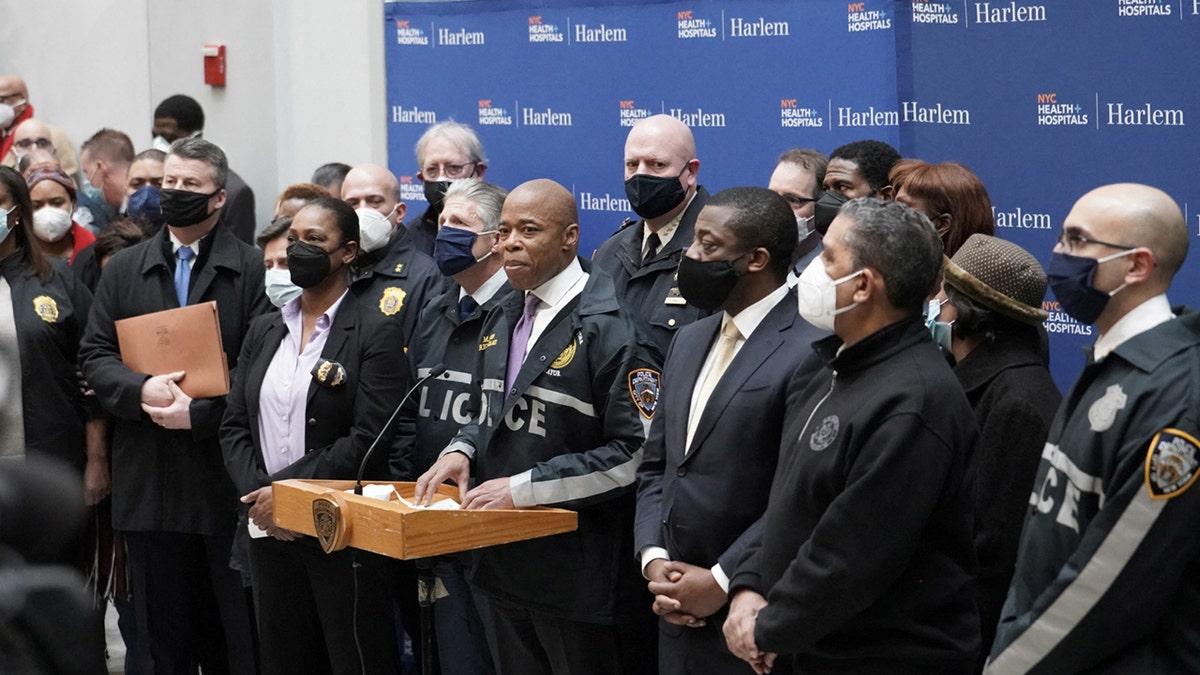Gov. Youngkin: Virginians ready for a new direction
In his first television interview since taking office, Virginia Gov. Glenn Youngkin discusses his first executive actions and education priorities.
They are not even a month into their terms, but get used to hearing the names Glenn Youngkin and Eric Adams. Virginia’s Republican governor and New York City’s Democrat mayor come from different backgrounds and represent opposite political parties, but both men – and their platforms – have the ability to imprint the national debate for years to come.
Consider the similarities: both ably dealt with thorny issues during their nationally watched campaigns. Both were elected on clear mandates. Both are fresh faces for their respective parties in need of new leaders. In other words, the expectations for both could not be higher.

New York City Mayor Eric Adams addresses the press about the scene where NYPD officers were shot while responding to a domestic violence call in Harlem on Jan. 21, 2022. (Reuters/Dieu-Nalio Chery)
Youngkin’s election snapped a long losing streak for the GOP in the Old Dominion dating back to 2009. As the fast-growing Washington, D.C., suburbs turned Virginia a deeper shade of blue, some Republicans were wondering about its viability as a competitive battleground state.
As a first-time candidate, Youngkin ran in a state that had become ground zero for critical race theory. He promised to put parents back in charge of their kids’ education, drawing a stark contrast with his Democratic opponent, Terry McAuliffe, who declared, "I don’t think parents should be telling schools what they should teach."
Above all else, Youngkin’s candidacy offered something for all wings of the GOP tent to like, and he has the receipts to prove it. He not only turned out more voters in rural red Virginia, but narrowed the margins in the blue D.C. suburbs. He avoided falling into divisive media traps or esoteric debates about the future of the party. He instead focused on issues voters cared about right now.
In other words, Youngkin created a playbook for Republican candidates to win in battleground states and districts across America. It’s no wonder he has reportedly received – and declined – at least two dozen requests to attend GOP fundraisers in other states.

Gov. Glenn Youngkin speaks to the media following a cabinet swearing-in ceremony at the Virginia Executive Mansion, in Richmond, Virginia, on Saturday, Jan. 15, 2022. (Al Drago/Bloomberg via Getty Images)
More than 300 miles north, Eric Adams is taking over Gracie Mansion during a tumultuous time for Gotham. Although the eight years of de Blasio administration came to a merciful end, challenges abound, especially on the issue Adams grounded his campaign on: crime.
During a crowded Democratic primary last spring, Adams, a former cop, was one of the few unequivocal voices backing the blue. While some of his opponents danced around or even embraced the "defund the police" mantra that had become a calling card for liberal activists, Adams took the opposite approach. He blamed the slogan on "young White affluent people."
When asked how he would define success, Adams declared, "public safety," calling it, "the prerequisite to prosperity."

New York City Mayor Eric Adams talks to the press about the scene where NYPD officers were shot while responding to a domestic violence call in Harlem on Jan. 21, 2022. (Reuters/Dieu-Nalio Chery)
After just three weeks in office, it’s clear Adams has his work cut out for him. The Big Apple’s crime rate surged in almost every category in 2021. This year alone, the city has been rocked by the killing of a woman pushed on the tracks in front of an oncoming train in Times Square, as well as the murder of two NYPD officers in Harlem. The mayor himself as said he does not feel safe riding the subway.
If Youngkin’s campaign message was education, Adams’ was crime. So far, both are attempting to deliver on their core issues. Youngkin’s first executive order prohibited critical race theory in Virginia’s schools. He also banned school administrations from issuing mask mandates, saying the decision belonged to parents.
CLICK HERE TO GET THE OPINION NEWSLETTER
Adams’ news conferences and interviews reacting to horrific and tragic events have become ubiquitous on cable news. Earlier this week, he announced an ambitious plan to restore public safety, including reinstating a police unit disbanded by de Blasio.
CLICK HERE TO GET THE FOX NEWS APP
It’s early yet, but a Republican governor who stands his ground against the woke mob or a Democrat mayor who unabashedly defends police and law-and-order could be more than just breaths of fresh air or candidates who deliver on their promises. These could be winning blueprints for national political parties charting their next steps and searching for future standard-bearers. Let’s see if they’re listening because the voters are certainly paying attention.











































